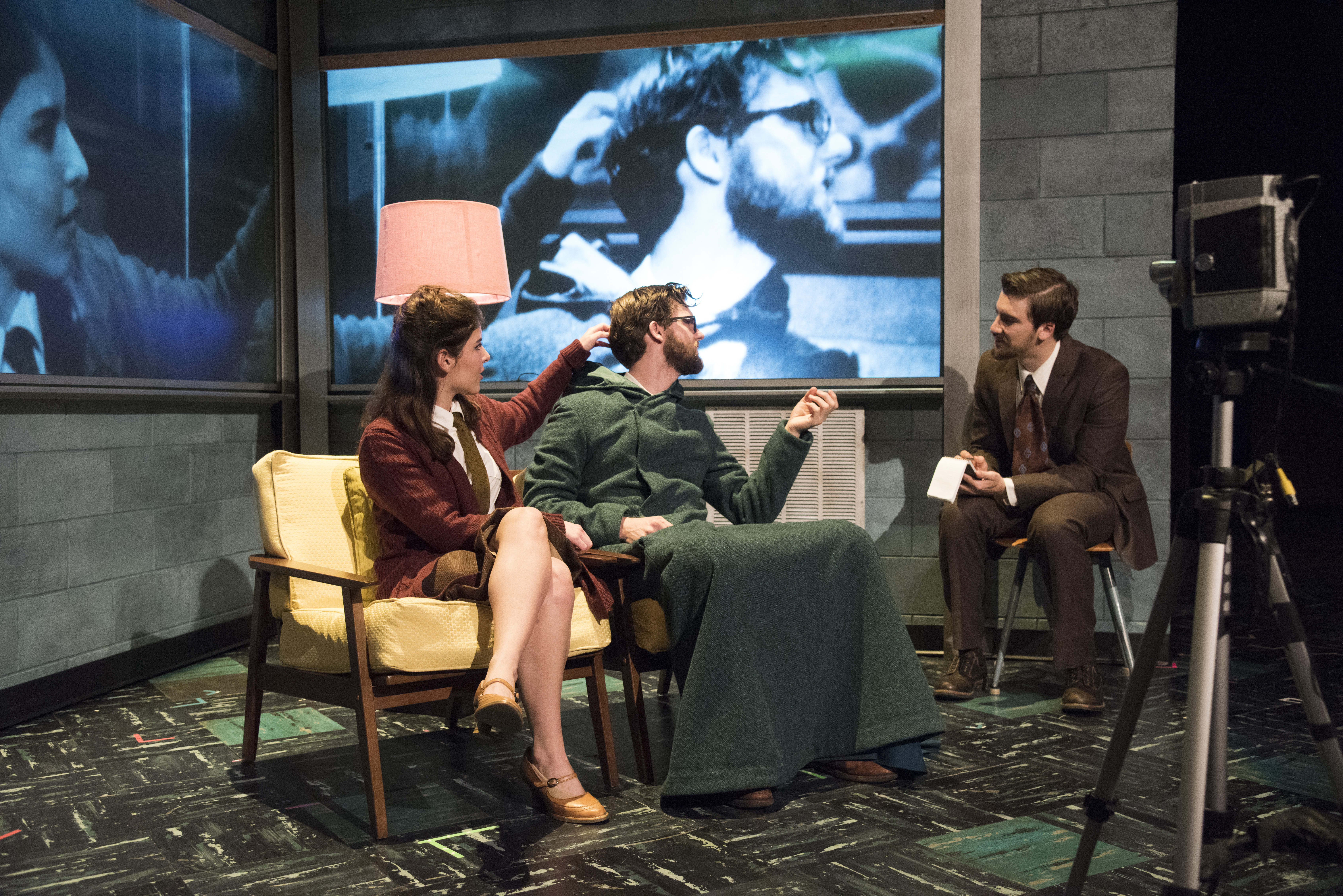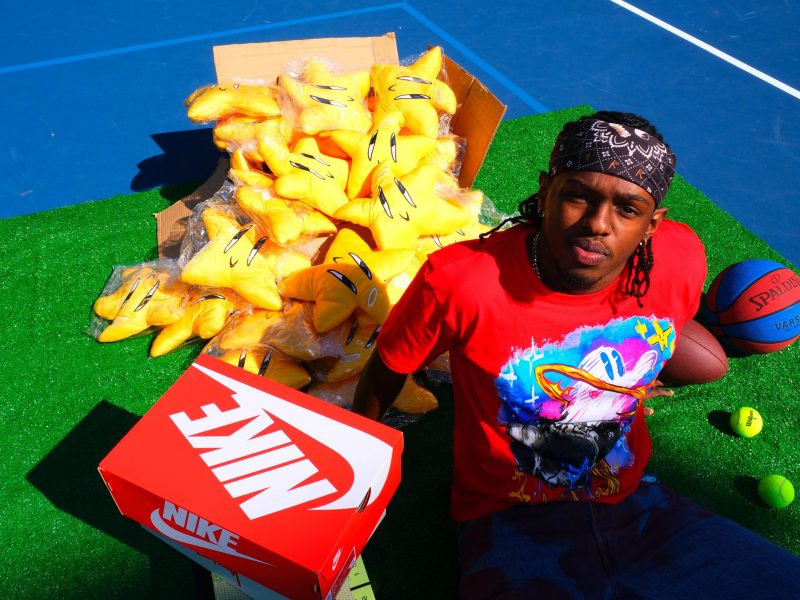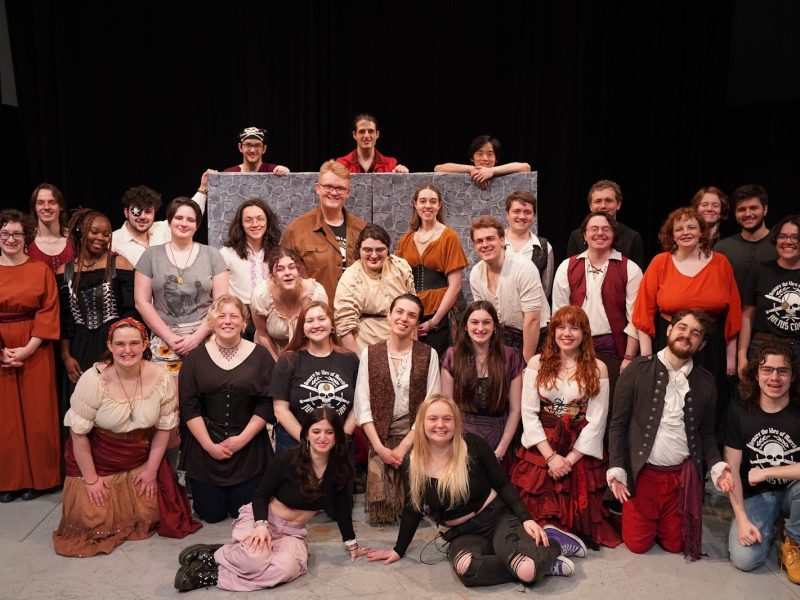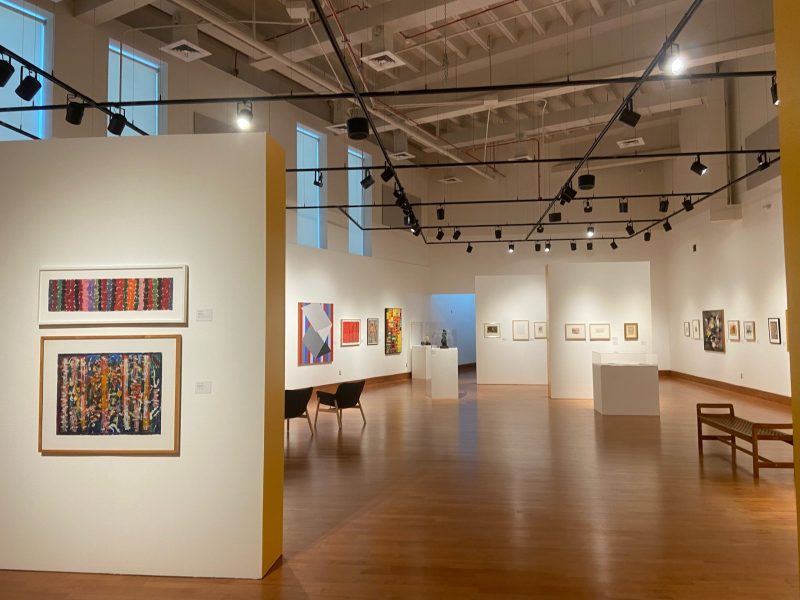In the age of Tinder, Bumble and Grindr, connecting with others has become easier than ever, yet the importance of emotional connection has lessened. Through the elimination of love altogether, Maksym Kurochkin’s The Schooling of Bento Bonchev at The Clarice Smith Performing Arts Center reminds its audience that sexual attraction can never be denied.
Set in a dystopian future society where sexual relations and, by extension, love, are relics of the past, the play focuses on Bento Bonchev, played by senior theatre major Alex Beveridge, as he challenges his professor and declares that love and sex is nothing but a myth.
That is, until, he meets Sandy, an eager young student whose love for Bento cannot be hidden, even in a society where love is denied. Watching attraction grow between the pair is reminiscent of a coming-of-age story, as the two are incognizant of their unfamiliar feelings.
The play opens with an immediate sense of urgency that is sustained over the course of the show, as cast members deliver every line with fervor. Watching Beveridge quickly run around the stage, change moods and even give an impressive rendition of Queen’s “Don’t Stop Me Now” allows his performance to emerge as one of the strongest, so much so that the character seems to have been written for an actor like him.
The show has a dynamic set made up of only a few pieces. Many characters deliver their lines behind careful silhouettes, adding to the idiosyncratic nature.
As the show attempts to tackle several themes ranging from education, media and sex, the characters quickly move from one scene to another as the plot jumps forward in time. Perhaps the most interesting was the costume design, as the male characters sported outfits that were not gender normative and apt for a show so distinctive.
Much of the show’s humor is off-color, as the audience at one point watches the cast view ancient videos of the most barbaric, mystical act — sexual intercourse. While this may have been uncomfortable, the characters pilot the scene to prevent it from steering into awkward territory.
The show critically examines the role of the media, government and our peers in influencing young people. Through satire, it playfully portrays how powerful the media is in dictating human sexual behavior, demonstrating just how necessary true love is when navigating a confusing, large and nuanced world.



